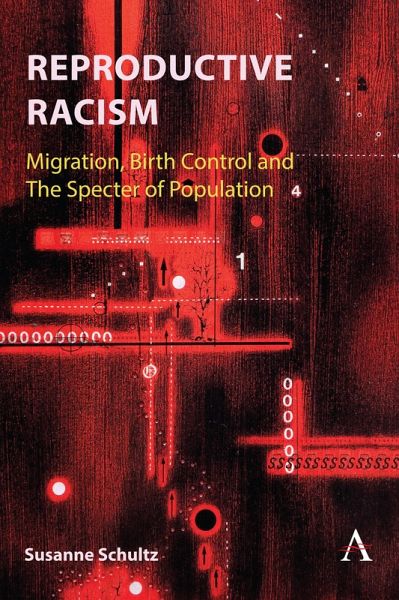
Reproductive Racism (eBook, ePUB)
Migration, Birth Control and The Specter of Population
Versandkostenfrei!
Sofort per Download lieferbar
25,95 €
inkl. MwSt.
Weitere Ausgaben:

PAYBACK Punkte
13 °P sammeln!
Population is a dangerous political category. It is not separable from the racist and class-based valorisation and devaluation of different lives. From contraceptive implant programmes for the Global South to right wing anti-immigration discourses, demographic interpretations of multiple global and local crises legitimise the states' grip on childbearing and mobility. The results are various dimensions of reproductive racism and restrictive border regimes. Meanwhile, global social inequalities and racial capitalist extractivism stay out of the game.The book explores how demographic knowledge p...
Population is a dangerous political category. It is not separable from the racist and class-based valorisation and devaluation of different lives. From contraceptive implant programmes for the Global South to right wing anti-immigration discourses, demographic interpretations of multiple global and local crises legitimise the states' grip on childbearing and mobility. The results are various dimensions of reproductive racism and restrictive border regimes. Meanwhile, global social inequalities and racial capitalist extractivism stay out of the game.
The book explores how demographic knowledge production and states' grip to the variable of population intertwine. It introduces the concept of a Malthusian matrix in order to understand how class-selective and racist hierarchies within population narratives are combined with gendered policies of reproductive bodies and behaviours. Another chapter unfolds the invisible assumptions underlying demographic projections, as these future narratives support powerful strategies of domination in the presence.
Through the book various current dimensions of reproductive racism are demonstrated, distinguishing between the birth of desirable and undesirable people: an upward redistributive family policy in Germany is promoting births within the privileged middle classes. And international population programs revive targets in order to increase the use of long-acting contraceptives in the Global South, within a market-oriented setting of Big Pharma promotion. Reproductive racism is also effective in migration policy strategies: narratives about "migrant birth rates" circulate in ultra-right forces as well as among seemingly apolitical demographic policy consultancy.
Finally, the book also reflects on the role of statehood in contested demographic politics and what theoretical instruments are needed in order to attack the demographic power-knowledge complex. The epilogue refers to the intersectional feminist concept of reproductive justice as an important tool and framework for anti-Malthusian resistance and alliances.
The book explores how demographic knowledge production and states' grip to the variable of population intertwine. It introduces the concept of a Malthusian matrix in order to understand how class-selective and racist hierarchies within population narratives are combined with gendered policies of reproductive bodies and behaviours. Another chapter unfolds the invisible assumptions underlying demographic projections, as these future narratives support powerful strategies of domination in the presence.
Through the book various current dimensions of reproductive racism are demonstrated, distinguishing between the birth of desirable and undesirable people: an upward redistributive family policy in Germany is promoting births within the privileged middle classes. And international population programs revive targets in order to increase the use of long-acting contraceptives in the Global South, within a market-oriented setting of Big Pharma promotion. Reproductive racism is also effective in migration policy strategies: narratives about "migrant birth rates" circulate in ultra-right forces as well as among seemingly apolitical demographic policy consultancy.
Finally, the book also reflects on the role of statehood in contested demographic politics and what theoretical instruments are needed in order to attack the demographic power-knowledge complex. The epilogue refers to the intersectional feminist concept of reproductive justice as an important tool and framework for anti-Malthusian resistance and alliances.
Dieser Download kann aus rechtlichen Gründen nur mit Rechnungsadresse in A, D ausgeliefert werden.













